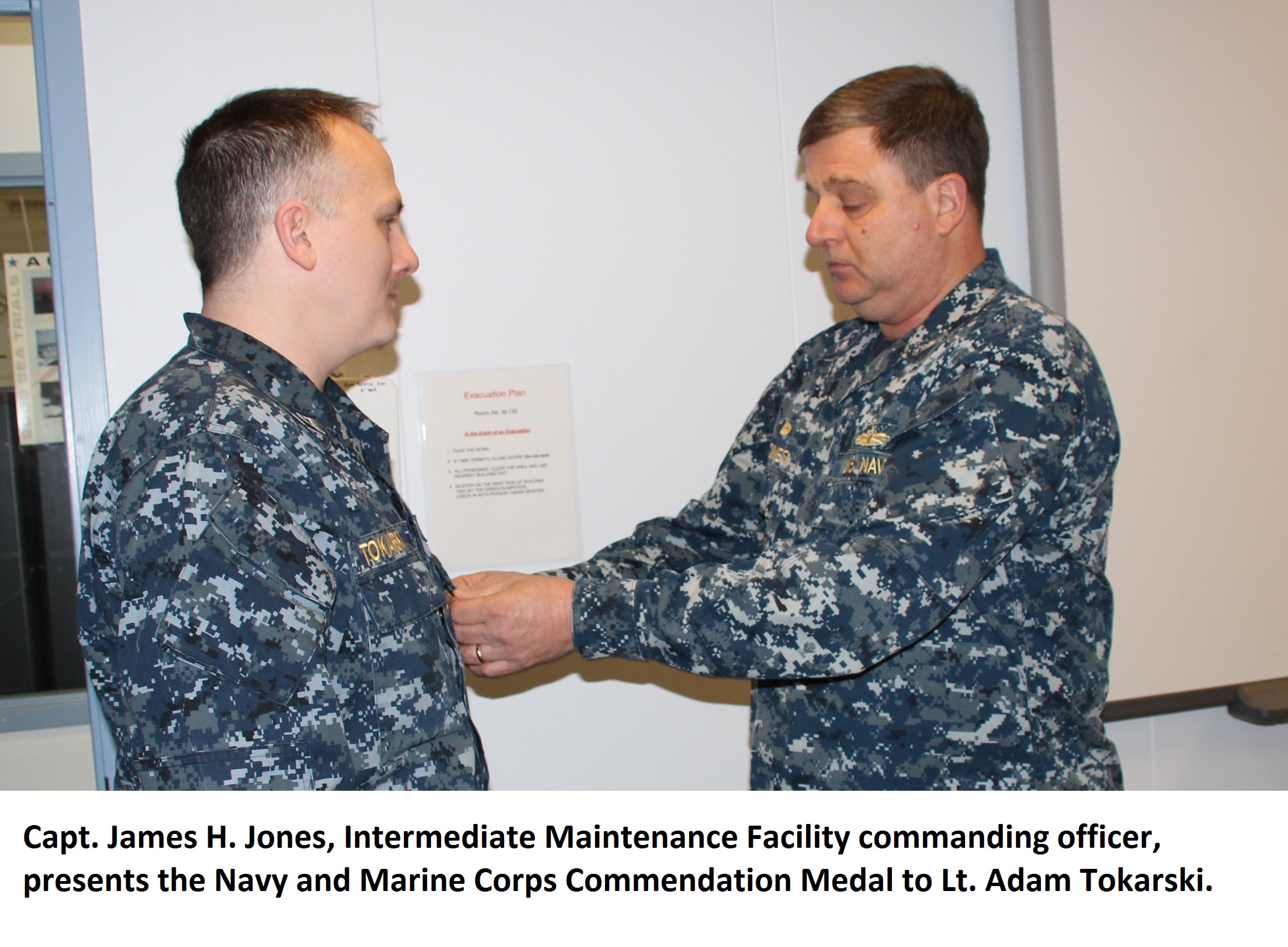IMF Sailor saves choking teammate

By Max Maxfield, IMF Command Information Officer
Imagine sitting at your desk when you hear a co-worker in distress. You realize the person is choking. What do you do?
You’re probably thinking you’d perform the Heimlich maneuver to save the person. What if you were recovering from spinal fusion surgery and suffered so much pain that you were forced to walk with a cane for many days?
Lt. Adam Tokarski, who is assigned to IMF on limited duty orders to recover from back surgery, opted to ignore the potential pain and suffering picking up a person would likely cause, and performed the Heimlich maneuver on Lt. Bradley Rempfer.
“On the day of the incident, I had already finished my lunch, and my back was to Lt. Rempfer, who was still eating,” recalled Tokarski. “At first, it sounded like he was vomiting; I was going to wait until he was finished to see if he was OK or needed anything. After a few seconds, the sound changed from vomiting to a desperate gasping. I turned around, and he was already looking at me. His hand was on his throat, and he let out an almost silent ‘I’m choking.’”
“I swallowed some food down the wrong tube,” explained Rempfer, a quality assurance officer with Code 861. “I tried to say ‘help’ verbally, and then I swatted at him with my arm. I thought about what I’d do if he couldn’t or didn’t get to me. I was going to fall on the chair to try and dislodge it.”
The choking sounds and look of distress on Rempfer’s face triggered Tokarski into action.
“I was already out of my chair and positioning him for abdominal thrusts,” Tokarski said. “I delivered three or four thrusts, and the food was still lodged. At this point, it occurred to me that I might not have enough strength to dislodge the food. Without stopping the thrusts I called out for help. Thankfully, one or two more thrusts later, the food dislodged.”
 Rempfer said the situation played out quickly and simply.
Rempfer said the situation played out quickly and simply.
“He got to me and started to perform the Heimlich right away, and I could feel the food coming up each attempt he made,” he recalled. “Once the food was dislodged, I first told him the food was out so he could stop performing the Heimlich on me. Then I told him, ‘Thank you.’”
Once the danger had passed, Tokarski had time to reflect on what had just happened.
“Lt. Rempfer let me know the food was out, and once I realized he was OK, my only thought, strangely enough, was ‘this is my first time doing this on a human,’ explained Tokarski. “I grew up with a mom who is a nurse and an uncle who is a veterinarian, so I’ve practiced first aid on people and animals as long as I can remember. I have actually given abdominal thrusts to three or four dogs prior to this, including my sister-in-law’s Boston terrier,
on Nov. 25, 2015, when he choked on a cat toy.”
Tokarski said the danger to Rempfer, and his previous training and experience allowed him to simply react and take action.
“At the time, I did not think about the back injury or what may come of it,” said Tokarski. “I didn’t really think about anything other than, ‘that explains the change in the sound (vomiting to choking).’ I truly just reacted to the situation on learned instinct. The surge of adrenaline kept me from feeling, or at least noticing, any pain in my back. After the food came out and the adrenaline died down that’s when I realized I probably did more damage to my back. Although the incident has increased my pain level significantly, I would rather deal with the pain or even more surgeries; I don’t want to lose a friend.”